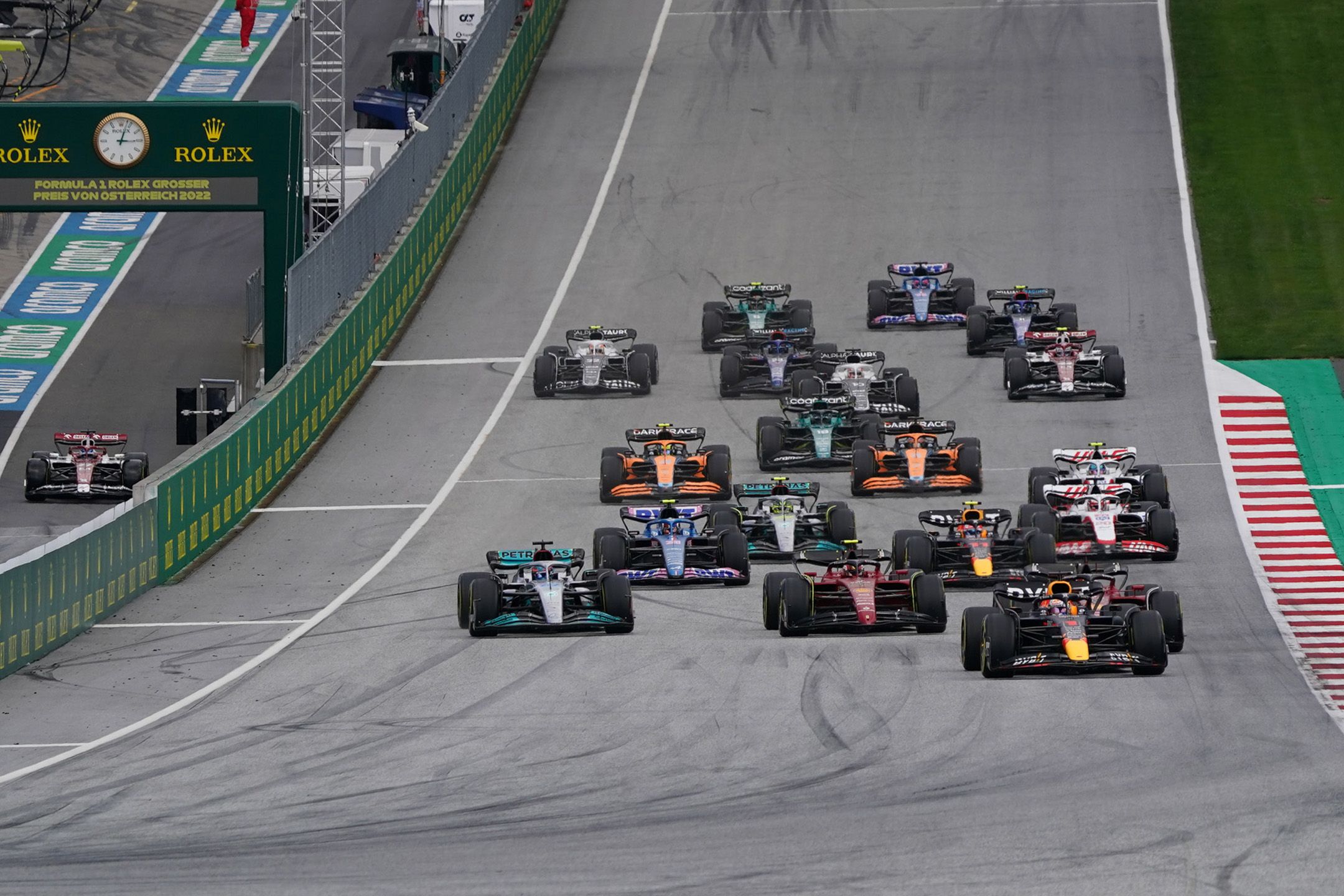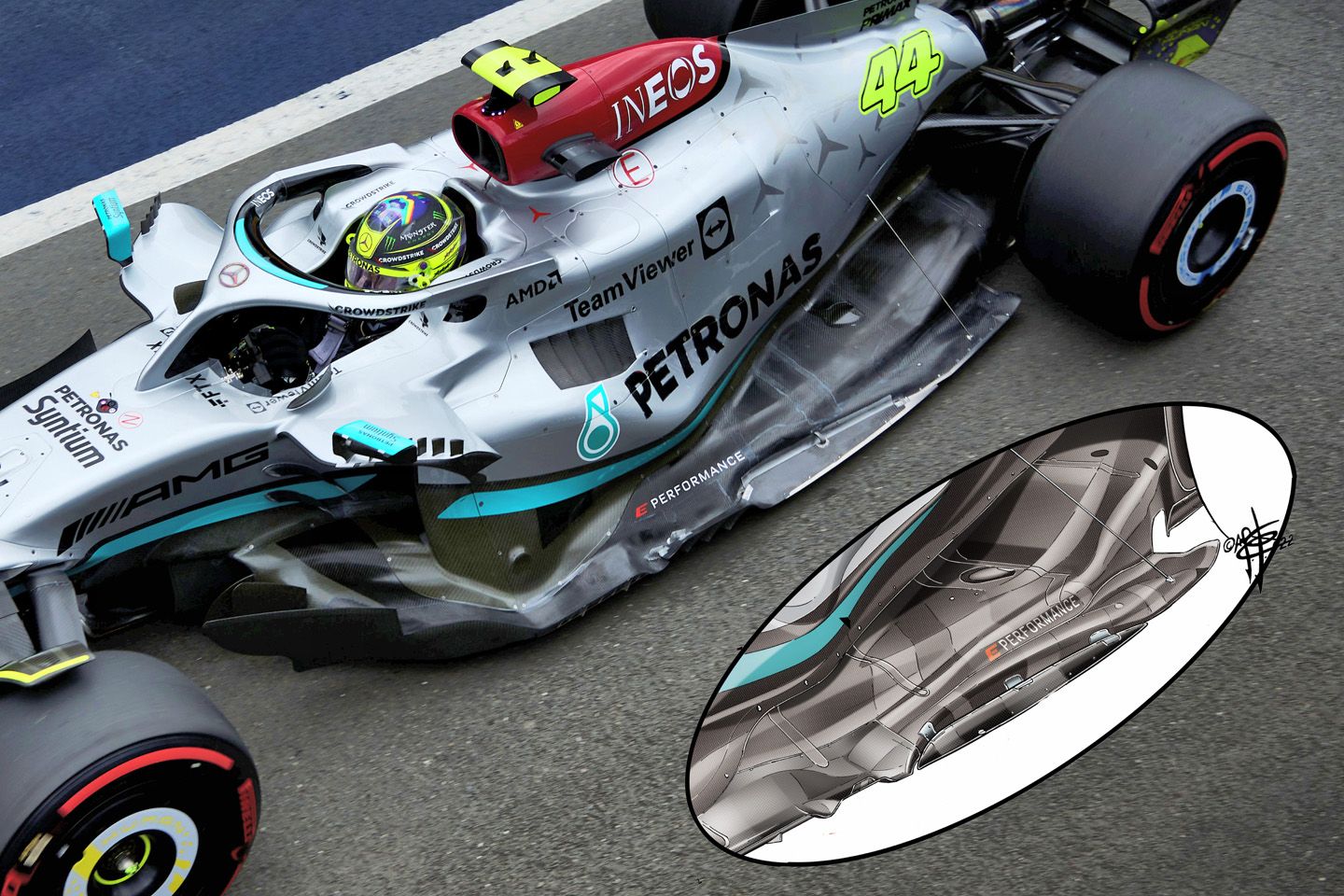Formula One News
The FIA is facing a rebellion from at least six Formula 1 teams over floor changes that are set to be introduced for 2023 to help combat porpoising, Motorsport.com has learned.

As part of the FIA’s intervention on safety grounds to limit bouncing following driver complaints, it outlined recently the measures it was going to implement.
As well as enforcement of an Aerodynamic Oscillation Metric (AOM) and a clampdown on flexi floors from the Belgian Grand Prix, it also decided that changes to the technical regulations were required for 2023.
Following discussions in the Technical Advisory Committe (TAC) after the Austrian GP, the FIA stated that it would mandate a 25mm raising of the floor edges, a raising of the underfloor diffuser throat, more stringent lateral floor deflection tests and the use of a more accurate sensor to measure bouncing.
Teams are currently awaiting more detailed rule proposals from the FIA on the matter, which should include the specific measuresments and regulations that the governing body wants to put in place for next year.
But the series of measures has, however, already drawn a backlash from teams who are unhappy about the extent of the expensive changes – which they feel are unnecessary with the porpoising problem appearing to be more under control in recent races.
It is understood that a core team of six outfits – believed to include Ferrari, Red Bull, AlphaTauri, Alfa Romeo, Haas and Williams – are ready to challenge the changes amid questions about whether or not the FIA’s claims it is a safety matter are legitimate.
It has long been a part of the sport’s governance structure that, for issues that involve safety, the FIA can change rules without the need for any support from the teams.
Article 1.2.2 of F1’s Technical Regulations states: “Any changes made by the FIA for safety reasons may come into effect without notice or delay.”
It is understood the unhappy teams have begun lobbying FIA president Mohammed Ben Sulayem to argue that the changes to the technical rules for 2023 are not a genuine safety matter so should not be allowed to go ahead.
Sources with good knowledge of the situation have suggested that there is even support from eight teams – which would be enough for a ‘super majority’ rule change to be ratified through the normal F1 Commission processes – for a compromise solution that is a less extreme raising of the floor.
It is suggested that teams could accept more minor tweaks – such as the floor edge being raised by around 10mm – as that would not require such a fundamental rethink of car designs at this late stage.

What is unclear is what avenues the teams have to fight the changes if the FIA stands firm and refuses to back down from its decision to go for its more extreme version.
One factor that cannot be completely ruled out is a veto from Ferrari, with the Italian squad having retained its right to block specific rule changes as part of the new Concorde Agreement that came in to place from 2021.
While it is thought unlikely the veto would be able to stop rule changes going through on genuine safety grounds, the debate over whether or not the changes fall under that remit means the situation is not crystal clear.
A number of teams are especially fearful that the scope of the floor changes being introduced by the FIA are playing in to rival Mercedes’ hands – and the tweaks both this season and for 2023 are being framed in such a way that they could benefit the German car manufacturer.
There are also concerns that Mercedes has over-egged the porpoising problems that it has struggled to get on top of just so the FIA is forced to step in and change the rules.
One team boss said: “The changes are so extreme for 2023 because Mercedes claim that they have found 40% more downforce for next year, so they have urged the FIA to act. If Mercedes have genuinely done that, then you may as well hand them the world championship now.”
The FIA is insistent, however, that its actions are only motivated on ensuring the current generation of cars are safe.
A statement from the governing body last week said: “It is the responsibility and the prerogative of the FIA to intervene for safety matters, and the reason the regulations allow such measures to be taken is precisely to allow decisions to be taken without being influenced by the competitive position each team may find themselves in.”